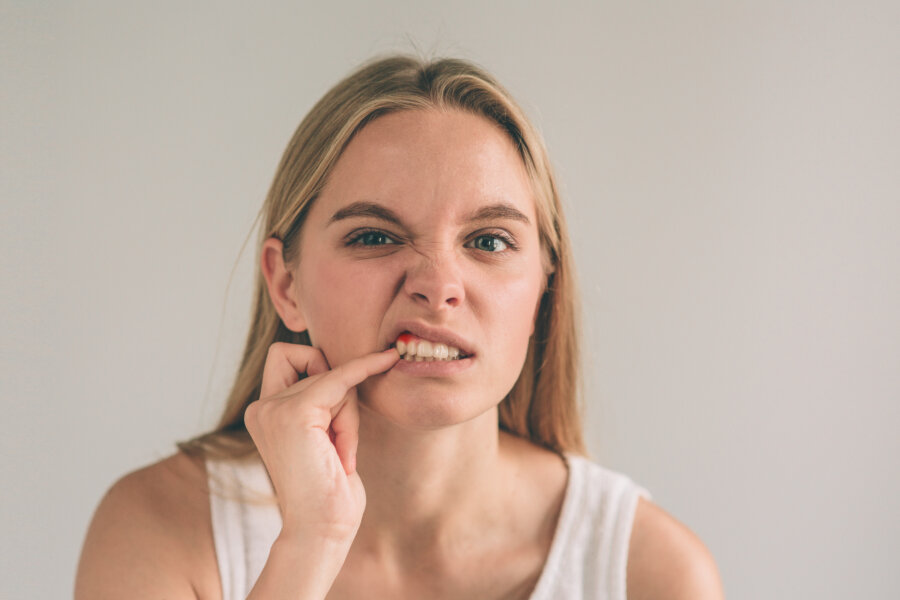
When Is Tissue Grafting Necessary?
Types of Tissue Grafting
There are two types of tissue grafting, including gum grafts and bone grafts. These procedures are designed to restore jaw strength and gum health. You can either get a dental implant for a missing tooth or keep your natural teeth longer.
Gum Grafts
Gum grafts involve using tissue from other parts of the mouth. Often times the roof of the mouth or healthy parts of the gum is used to fill in the missing gums. Once the grafts are sourced, they are stitched into place over the exposed roots in order to remove all signs of gum recession and restore the health of the mouth.
Bone Grafts
Bone grafts are used when the individual is missing a tooth and wishes to receive a dental implant. Thus, the existing bone tissue isn’t dense enough or thick enough to support an implant. Bone loss in the jaw can occur due to advanced periodontal disease or having one or more missing teeth. When the cause is having one or more missing teeth, it’s because when an individual bites and chews, it stimulates the jaw. When no tooth is present, there is no pressure on that area of the jaw. Therefore, that section of the jaw does not get stimulated, which can lead to a loss of bone density.
Causes of Bone Loss and Gum Recession
Jaw bone loss and gum recession can be caused by a variety of conditions, and most of the conditions are caused by a lack of brushing or brushing too hard. However, gum recession and bone loss can also be caused by certain chronic conditions. These are a few of the conditions:
- Brushing Too Hard – Causes Gum Recession
- Dry Mouth – Can Contribute to Gum Disease and Gum Recession
- Periodontal Disease – Causes Gum Recession and Bone Loss
- Gingivitis – Causes Gum Recession and Leads to Periodontal Disease, if Untreated
- Teeth Grinding – Causes Gum Recession and Excessive Tooth Wear
- Misaligned Teeth and Bad Bites – Causes Gum Recession and Bone Loss
- Missing Teeth – Causes Bone Loss
- Uncontrolled Diabetes – Contributes to Gum Disease, Gum Recession, and Bone Loss
- Uncontrolled High Blood Pressure – Contributes to Gum Disease, Gum recession, and Bone Loss
- Autoimmune Disorders – Contributes to Gum Disease, Gum Recession, and Bone Loss
Benefits of Tissue and Bone Grafting
Tissue and bone grafting can help restore your oral health. If you have exposed roots due to extreme gum recession, getting gum grafts helps cover the exposed roots. Once all the gum grafts have healed, your gums will look as though you never had any type of gum recession. Not to mention, if you are older or more prone to gum recession in the future, extra tissue can be put in the area in order to thwart future gum recession.
Bone grafts are beneficial for restoring the strength and structure of the jaw. It’s intended to improve the areas where teeth are missing and an implant is to be placed. The bone grafts are typically sourced from other parts of the individual’s jaw, mouth, body, or from a cadaver or animal. They are then placed in the areas of the jaw that need more strength or density. The purpose of a bone graft is to stimulate jaw bone growth so that an implant can be successfully placed.
Tissue Grafting at Vero Implants and Periodontics in Vero Beach
Here at Vero Implants and Periodontics in Vero Beach, we offer gum and bone grafts for individuals who have experienced significant gum recession. They are designed for people who wish to have one or more dental implants in order to replace missing teeth but do not have enough bone density to support the implant. Each treatment is tailored to the individual in order to provide the best possible outcome.
To schedule an appointment for dental implants and periodontal disease treatment, call us at 772-569-9700.